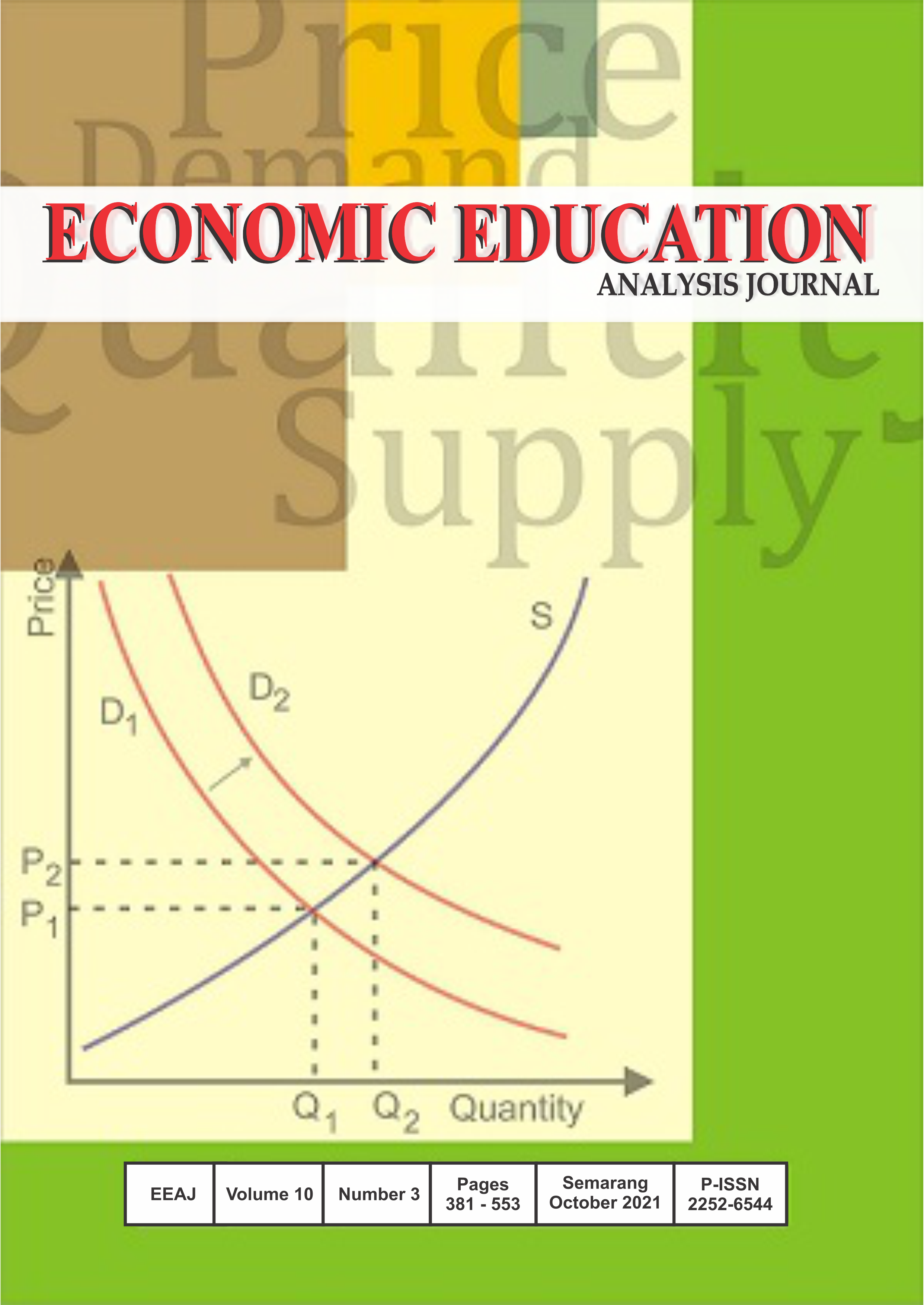Demographic, Financial Literacy, and Financial Behavior of Women Working in Manufacturing Industry
Main Article Content
Abstract
The purpose of this study is to determine the effect of demographic factors and financial literacy on financial behavior of women working in manufacturing industry. Women are the targets of financial literacy due to their involvement in fulfilling the household needs and welfare. This research is quantitative research. Using the questionnaire on 115 respondents in this study from various manufacturing industries in Purbalingga with probability sampling as the technique. While the data analysis technique used Structural Equation Modelling (SEM) PLS 3.0. The findings show that, first, demographic factors contribute positively and significantly towards female workers’ financial behavior with original sample value 0.224 and t-value 2.420 > 1.96; second, financial literacy also contributes positively and significantly towards financial behavior with original sample value 0.256 and t-value 3.251 > 1.96. The higher the demographic factors of female workers, the better their financial management are. Likewise, students with low financial literacy tend to be able to hold back their urges to buy things and use services. Moreover, the significance of financial literacy and demographic factors has important implications for the development of policies that aim to improve financial behaviour among women working in financial education programs.
